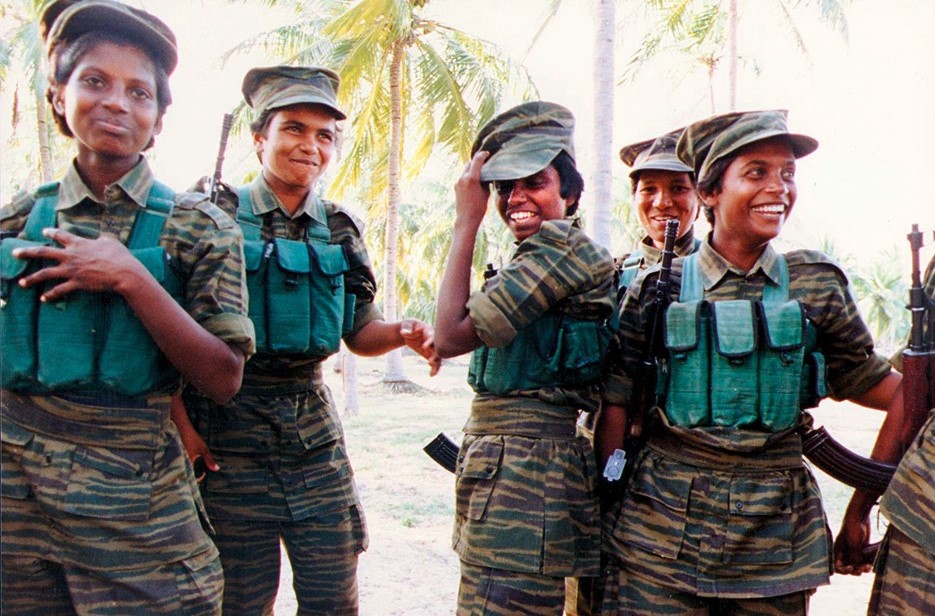Image courtesy Thuppahi’s Blog
The Sri Lankan government’s Disarmament, Demobilisation, and Reintegration (DDR) program has invested in bridging former fighters’ transition from wartime to peacetime, but many aspects of the DDR program continued to pose problems for female cadres. Women who fought are still visited by the military in monitoring visits, which can be terrifying for family and neighbours and have detrimental impacts on their ability to live a normal life. Some women are pressured into marriage or experience sexual harassment because they were cadres.
The Liberation Tigers of Tamil Eelam (LTTE) fought on principles of feminism and liberation, and many women joined because they strongly believed in these values. DDR programs in their current guise do not provide women with the same opportunities they fought for. Measures should not only target economic development. They must also be socially progressive; empowering their feminist liberal identity, not crushing it.
Non-feminized economic opportunities for former female cadres would help more people rejoin the workforce.
DDR programs should acknowledge and celebrate skills that women built during the civil war, providing avenues for women to use them in their future work. It should remove aspects of programs that require women to conform to gender norms and encourage women to live authentically.
Female ex-combatants must deal with their identities as women and as former combatants- this makes the stigma against female cadres twofold and their rehabilitation more challenging. The Sri Lankan state has been complicit in perpetuating this stigma, directing the reintegration process towards restoring women to what they saw as ‘proper feminine roles’ such as beauticians, seamstresses, and nursery school teachers.
Going forward, DDR programs must address the social aspects of reintegration.
Psychosocial programs exist through state-led restorative justice model programs such as the ‘6+1 model.’ The psychosocial support groups are spaces for women to process their experiences and mourn their friends and colleagues. These support groups, as well as religious and community leaders, are vital in former cadres’ full reintegration. These programs facilitate closure by allowing women to understand their experiences and rejoin communities, and can be significant in preventing future conflict.
A conflict only heightens existing conditions of inequality, evident in the case of conflict based gender-based violence against Tamil women who have reported wide scale sexual harassment and assault. This is a common grievance amongst not only Tamil women, but women across the country. As highlighted by the UN Special Rapporteur on Violence Against Women, Radhika Coomaraswamy, sexual assault in the context of any ethnic conflict has community-wide implications given that ‘the female body is a symbol of a community’s honor and inner sanctum.’ It is important to ensure the safety of all women and to address systemic harassment.
Space must be made for former cadres, especially women, to participate in politics at a higher level.
Women who joined the LTTE because of their promises of liberation may have a more complex relationship with their former combatant status. During the war both men and women served in high ranking positions within the LTTE, projecting an image of gender equality to outsiders. In reality women may have been fulfilling these roles out of convenience to the group; nevertheless, this was an opportunity for women to lead significantly different lives than they were expected to otherwise.
Sri Lanka has been successful in bringing former cadres into the political system, but each and every one of those “success stories” are men. While minorities inclusive of Tamil people have been sidelined from politics over decades, female fighters are further silenced due to their status as women and their role in the civil war. Without proper political representation avenues, the needs of women cannot be met. Ensuring this political voice can and will ensure political solutions as well as pathways to avoid conflict in the future.
Click here to read the full paper.
This paper was originally written as part of a short research study on Gender Conflict and Culture at Tufts University, Boston.
